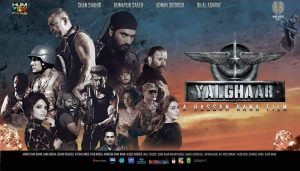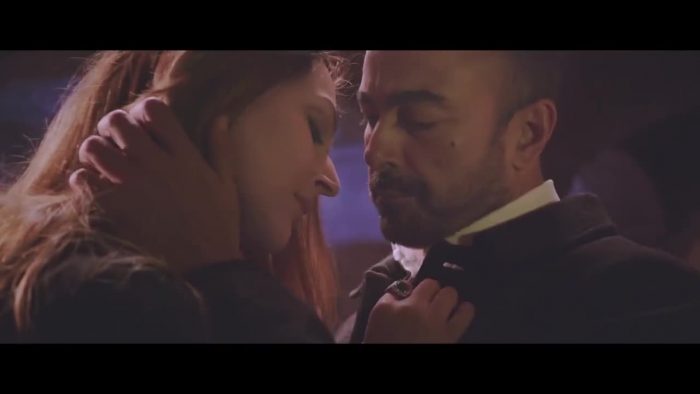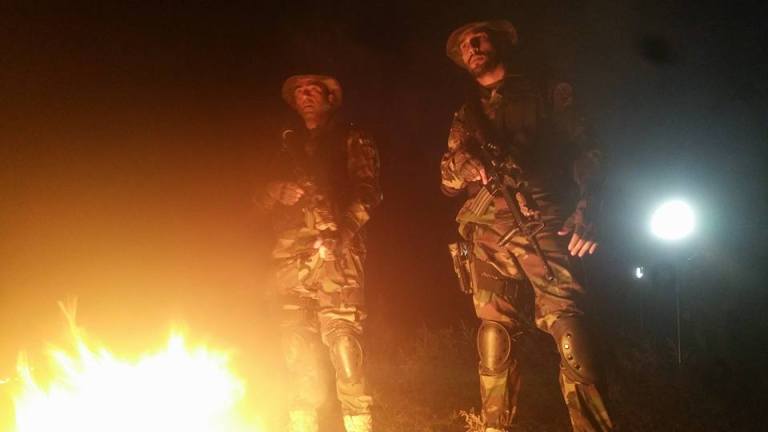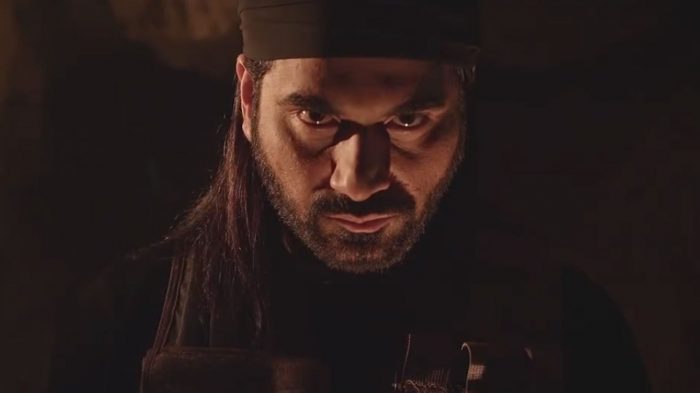Film Review: Yalghaar

The subject of Yalghaar couldn’t be more timely or closer to Pakistani hearts: the terrorism ravaging our country even while those inflicting the terror paint us as pariahs to the outside world. And with its big budget and impressive cast, expectations from the film were high. Unfortunately, for these very reasons, the film is all the more disappointing for failing to deliver on so many counts.
Handsome army officers and well-executed action sequences can only hold one’s attention for so long if unsupported by a strong plot and performances. The film’s authentic settings and realistic battle scenes give it credibility. But weak direction and character development turns even experienced and talented actors like Shaan into cardboard cutouts who fail to emote and establish a bond with audiences. His unfulfilled romance with journalist-turned actor, Sana Bucha, also playing a journalist in the film, leaves us equally cold and unmoved by their stilted and rather studied interaction.

The other couples in the movie fare little better. The female leads are, regrettably, notable only for their poor performances whether its Armeena Rana, Ayesha Omar or the others. And it’s not entirely their fault. Ayesha Omar is required to do little other than bawl while Armeena Rana is simply a prop for the dashing Bilal Ashraf, but her stiff dialogue delivery and poor diction don’t help matters. As for the actress playing Adnan Siddiqui’s wife, the less said the better.
Based on a real life army operation in Swat, the bare bones storyline of the film called for building up powerful vignettes around the individual officers. Instead the unimaginative treatment of the multitude of characters stretches out the film unnecessarily.

Bilal Ashraf and Ahmed Taha Ghani fare better than the others as Captain Bilal and Captain Asif respectively. Their banter and camaraderie provides some of the more entertaining footage in the film.
Coming to the villains, while Humayun Saeed’s portrayal of a nail-bufing psychopath is menacing enough, there is no reference to the religious zealotry that actually inspires terrorism. Why has that aspect of the situation been completely skirted? The leader of the terrorists is reduced to the archetypical filmi villain popular in Indian and Pakistani films.
Gohar Rasheed’s character, however, adds some nuance to the story and he puts in an intense performance as the conflicted young man who is caught in the web of terrorism but cannot bring himself to engage in acts of senseless savagery.

Despite all these caveats, the film does have some appeal as proved by the group of boys seated next to me in the movie hall. They were enthusiastic in their applause and laughter, especially at the Pushto one-liners the film is peppered with.
The bravery of our army officers and the rousing theme of national unity, especially the closing sequence, will most likely move all except the most jaded.
As the closing credits rolled, showing the pictures of the actual officers who lost their lives in Operation Swat, one can’t help but feel a lump in the throat. But this doesn’t point to the success of the film. Instead, it brings home more strongly than ever that this was an opportunity lost.
Zahra Chughtai has worked and written for Pakistan's leading publications including Newsline, the Herald and Dawn. She continues to write freelance.



